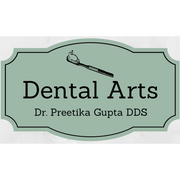
As your body changes, you have to change with it. When it comes to your oral care, that means maintaining steady appointments with your dentist and becoming aware of how aging will affect your mouth. While some changes are unavoidable, you can ensure your oral health by keeping a consistent hygiene routine.
How Does Aging Affect Oral Health?
Medical conditions can make dental hygiene difficult. Side effects of medication might cause dry mouth, while the aging process itself may reduce bone density. Related conditions, like osteoporosis, can cause dentures and bridges to suddenly fit poorly.
 Genetics also play a factor in your oral health. While you may have taken care of your teeth throughout your life, you may have a genetic disposition to plaque, cavities, or gum disease in your family. These conditions are treatable, especially when dealt with early.
Genetics also play a factor in your oral health. While you may have taken care of your teeth throughout your life, you may have a genetic disposition to plaque, cavities, or gum disease in your family. These conditions are treatable, especially when dealt with early.
While plaque can be a consistent problem, going for routine cleanings, flossing, and brushing your teeth twice a day will keep the plaque from sticking to your teeth and gums.
What Conditions Occur Because of These Changes?
Attrition
Attrition usually begins at the incisors or along the edges of your teeth, wearing them down as tooth-to-tooth contact is made while chewing. It is unavoidable even if you’ve maintained a strong oral hygiene regimen since childhood. It occurs naturally through chewing when your teeth make contact with each other. Attrition also happens through eating and drinking, as the contents of the food wear on the enamel over time.
Darkened Teeth
Like attrition, the darkening of teeth is unavoidable. Eating foods, drinking coffee and wine, and using tobacco products over a long period will change the color of your teeth. The discoloration occurs when the dentin—the tissue beneath the tooth’s enamel—stains due to the wearing out of the enamel.
Dry Mouth
Seniors may experience dry mouth naturally, as a side effect of different medications, or as a result of radiation treatment. Saliva does more than keep your mouth moist and break down food. It kills bacteria, fungi, and viruses that may develop in your mouth. It also helps rebuild enamel that may have been damaged by time, attrition, or erosion.
Tooth Decay
When the mouth can’t produce saliva, your tongue, gums, and mouth tissue will become swollen, and you’ll develop bad breath. Saliva neutralizes and washes away germs and bacteria.
Since you don’t have the saliva to wash away stubborn food particles, cavities can form. Your teeth become smaller along with the surrounding tissue as you age, resulting in decreased sensitivity in the area. Without regular check-ups with your dentist, you won’t know you have a cavity until it creates an abscess.
Tooth Decay
Untreated cavities can also form into tooth decay, which will create fractures and destroy the inside pulp. Tooth decay can sometimes be repaired. Your dentist can also place a crown to protect the damaged tooth and restore your smile. However, if the decay has gone on too long, the tooth won’t be salvageable and will need to be removed.
Gum Recession
Aging also makes the gums recede, exposing the dentin of the teeth that the gums usually protect. Exposed dentin increases sensitivity to warm and cold foods and beverages, causing discomfort when they’re consumed.
Pneumonia
 As you age, your immune system begins to weaken, and fluid won’t clear from your lungs as effectively. The likelihood of surgeries also increases. These factors leave seniors susceptible to pneumonia.
As you age, your immune system begins to weaken, and fluid won’t clear from your lungs as effectively. The likelihood of surgeries also increases. These factors leave seniors susceptible to pneumonia.
The chances of sustaining the condition will grow when seniors don’t practice good oral hygiene. They might breathe in bacteria from their mouth to their lungs, causing an infection.
Gum Disease
Gum disease has many causes, especially in seniors. Along with poor oral hygiene, ill-fitting dentures and bridges and common conditions like diabetes, anemia, and cancer contribute to its development. When gum disease goes untreated, it can lead to tooth loss. It also increases the risk of other conditions, including heart disease, by 20%.
Heart Disease
Dentists have found a connection between poor oral health and heart disease. Those with poor oral health have a larger number of bacteria in their mouths. The bacteria can move through the bloodstream into the respiratory system, affecting the heart and lungs. Those with gum disease are up to three times more likely to develop cardiovascular diseases, including heart disease. They may also experience heart attacks and strokes if oral health isn’t prioritized.
Diabetes
Gum disease and diabetes are interrelated, as the condition affects the body’s ability to regulate and use its insulin effectively. In turn, high blood sugar caused by diabetes will cause infections in the gums.
Thrush
Oral thrush is a fungus that forms as creamy white lesions on the tongue or the inside of the cheeks. If it goes untreated, the lesions will spread to the roof of the mouth, the gums, and reach the back of your throat to the tonsils. They can cause discomfort while eating or swallowing and result in loss of taste.
Seniors are prone to thrush due to medications or a weakening immune system. The condition can be controlled and avoided with routine dental visits.
Root Decay
Root decay often occurs alongside tooth decay and receding gums. It’s among the most common dental conditions faced by seniors. Over time, the gums naturally recede away from the teeth, exposing the root.
While the enamel protects the teeth, it doesn’t stretch to the root. With the root uncovered, the acids in foods and beverages will wear on the roots, causing decay, which happens at a faster rate than cavities.
What Are Some Oral Health Tips for Seniors?
1. Maintain Routine Dental Appointments
Visit your dentist twice a year for routine checkups. Their preventive care will keep issues from occurring and they’ll provide solutions to conditions you might be experiencing. If you’re feeling discomfort or notice changes to your oral health, reach out to them for help before your bi-annual appointments.
2. Make Changes to Your Oral Hygiene Routine
 The wearing of enamel combined with gum sensitivity and recession means that your mouth is more vulnerable than before. Brushing too hard will cause bleeding, which can lead to infections. Replace your toothbrush with another with softer bristles.
The wearing of enamel combined with gum sensitivity and recession means that your mouth is more vulnerable than before. Brushing too hard will cause bleeding, which can lead to infections. Replace your toothbrush with another with softer bristles.
An electric toothbrush can be helpful to those with arthritis since users don’t have to apply much pressure to operate them. The electric toothbrushes provide a deeper clean while also remaining gentle to sensitive teeth and gums.
Switch to fluoride toothpaste. It will keep your teeth from darkening and slow the breakdown of your enamel.
When plaque attaches to your teeth, they release acids that seep into the porous enamel, breaking it down and causing demineralization. If left alone, it can cause cavities. Fluoride toothpaste will eliminate the plaque and remineralize the enamel.
Floss lightly on the edges and spaces between your teeth to remove trapped food particles. This will decrease the likelihood of developing halitosis and gum disease.
Add antibacterial mouthwash to your daily oral care regimen. Use the mouthwash before brushing to kill bacteria and loosen food particles that flossing and brushing will then remove.
3. Clean Your Dentures Regularly
If you have dentures, remember to rinse them after eating and brush them as you would your regular teeth. You should also clean your mouth after removing the dentures after meals. This will wash away excess food particles that may have become stuck beneath the dentures.
Let the dentures soak overnight in an antibacterial denture solution. If you prefer a natural method, let the dentures soak in white distilled vinegar and warm water between a half an hour and a full night.
4. Avoid Tobacco Products
Tobacco products—including chewing tobacco—not only stain teeth but cause various forms of oral and throat cancer. Tobacco also increases the likelihood of tooth decay.
5. Treat Your Dry Mouth
If you’re experiencing dry mouth from a medication, try to switch it with another. If that’s not possible, speak to your dentist about chewing sugar-free gum, which will help produce saliva in your mouth. If chewing gum isn’t an option, drink more water. It will wash away bacteria and particles of food stuck between your teeth.
By making changes to your oral care regimen, you can maintain your health for years to come. Dental Arts in Huntington Station, NY, provides both preventive and restorative dentistry to the entire family. Their dentist, Dr. Preetika Gupta, treats each patient with care and compassion and uses only the latest dental technology available. To make an appointment at their Huntington Station office, reach out to them at (631) 591-9200; for Wyandanch, call (631) 643-3800. To learn more about their services, including Invisalign® and dental implants, visit their website.
About the Business
Have a question? Ask the experts!
Send your question

